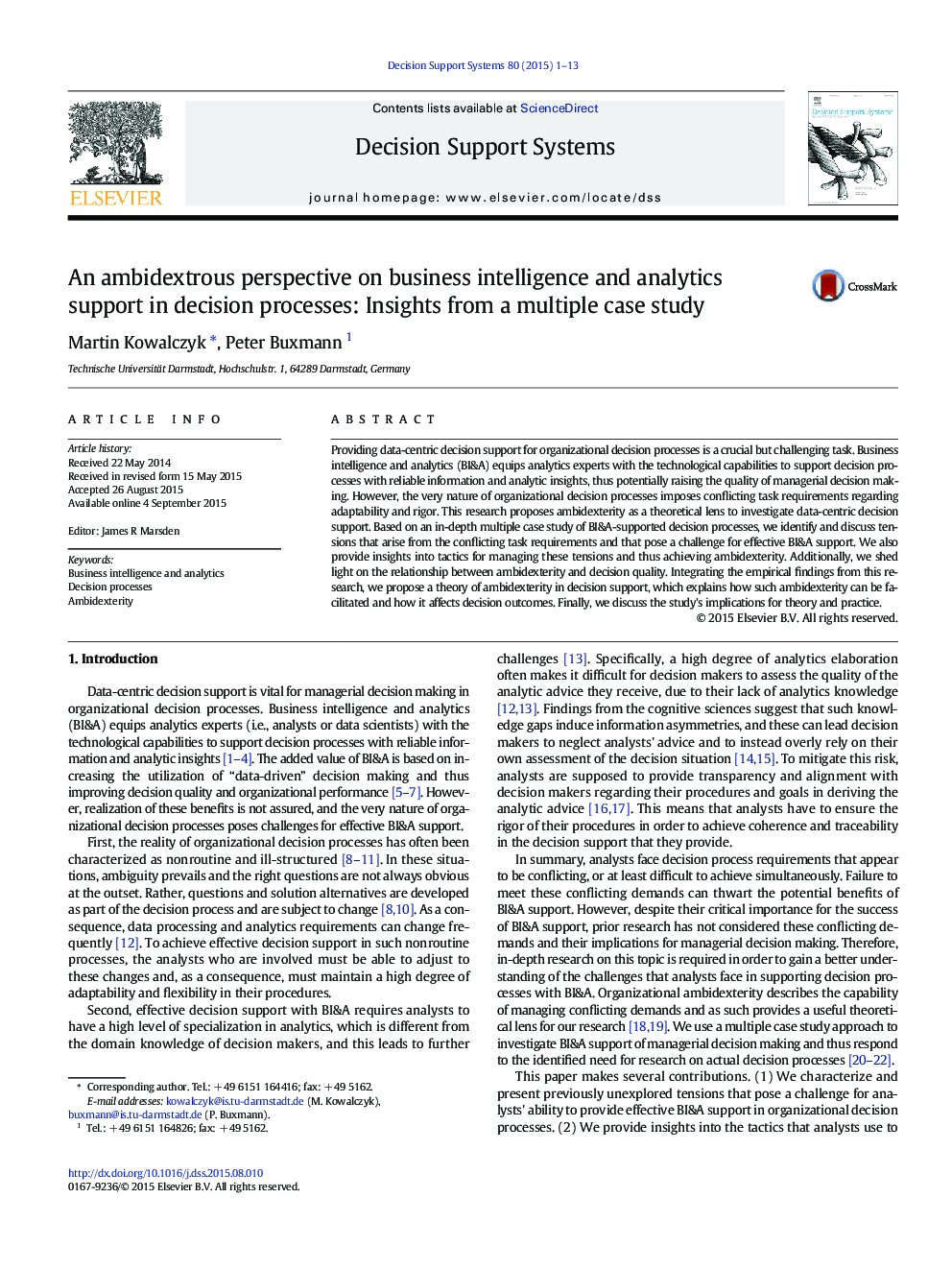| Article ID | Journal | Published Year | Pages | File Type |
|---|---|---|---|---|
| 553054 | Decision Support Systems | 2015 | 13 Pages |
•We present decision process tensions that pose a challenge for analysts' ability to provide effective BI&A support.•We provide insights into the tactics that analysts use to manage the tensions, i.e., tactics that facilitate ambidexterity.•We provide initial evidence concerning the effects of ambidexterity by examining its impact on decision quality.•Based on the empirical research findings, we propose a theory of ambidexterity in decision support.
Providing data-centric decision support for organizational decision processes is a crucial but challenging task. Business intelligence and analytics (BI&A) equips analytics experts with the technological capabilities to support decision processes with reliable information and analytic insights, thus potentially raising the quality of managerial decision making. However, the very nature of organizational decision processes imposes conflicting task requirements regarding adaptability and rigor. This research proposes ambidexterity as a theoretical lens to investigate data-centric decision support. Based on an in-depth multiple case study of BI&A-supported decision processes, we identify and discuss tensions that arise from the conflicting task requirements and that pose a challenge for effective BI&A support. We also provide insights into tactics for managing these tensions and thus achieving ambidexterity. Additionally, we shed light on the relationship between ambidexterity and decision quality. Integrating the empirical findings from this research, we propose a theory of ambidexterity in decision support, which explains how such ambidexterity can be facilitated and how it affects decision outcomes. Finally, we discuss the study's implications for theory and practice.
